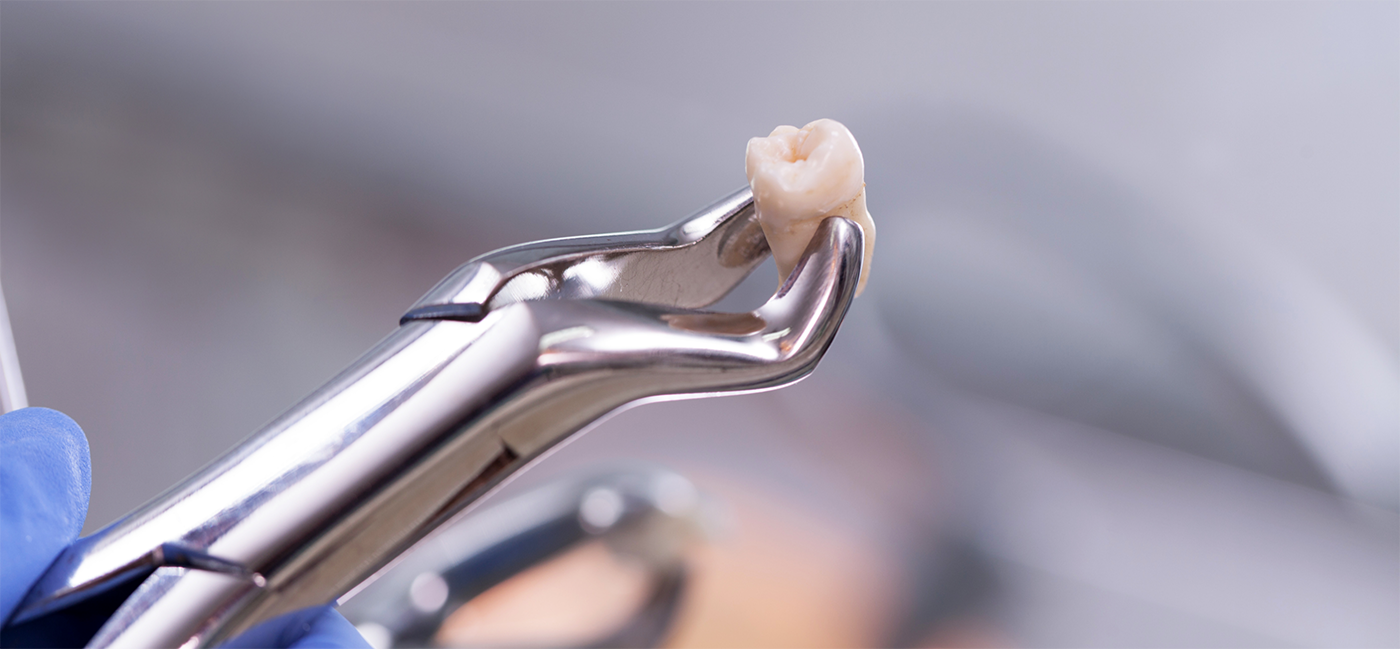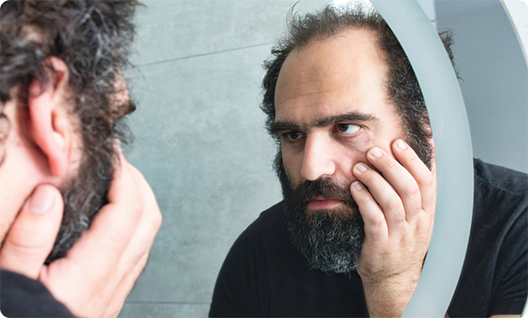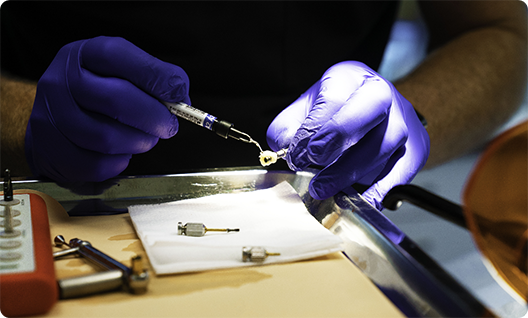@LITTLEROCKFAMILYDENTALCARE
Follow Us On InstagramTooth Extractions Little Rock
Stress-Free Tooth Removal

With every patient we see at Little Rock Family Dental Care, our goal is to preserve their natural teeth for life. Unfortunately, this ideal isn’t possible in situations involving extensive decay or dental trauma. If a tooth needs to go, our team is more than ready to take care of it and ensure the tooth extraction is smooth and stress-free. If you or your child have a problem tooth that needs to be looked at, give us a call today to get the care you need in Little Rock.
Why Choose Little Rock Family Dental Care for Tooth Extractions?
- Same-Day & After-Hour Emergency Appointments Available
- Team with a Certified Oral Surgeon
- Sedation Used to Guarantee a Comfortable Experience
Reasons Why Tooth Extractions are Necessary

Tooth extraction isn’t something to take lightly. After all, natural teeth are your best tools for biting, chewing, and smiling. Given those facts, we usually suggest restorative procedures like root canal treatment or a dental crown instead.
Still, there are times when extraction is necessary to preserve your oral health. In particular, our office may suggest it if you suffer one (or more) of the following:
- Severe tooth decay or damage
- An impacted tooth
- A dental infection that could spread to other teeth or body parts
- Overcrowding that prevents orthodontic work
- A “baby” tooth that won’t fall out on its own
The Process of Removing a Tooth

After the initial consultation, our office will decide how to extract your tooth. Depending on your situation, we’ll perform either a simple extraction or a surgical one.
If the tooth is visible, a simple extraction will be used. After numbing your mouth, this method removes your tooth with a special pair of forceps. The dentist will use that tool to rock your tooth back and forth until it naturally separates from your gum tissue.
A surgical extraction, meanwhile, is employed when the tooth hasn’t fully erupted. In that scenario, a dentist will make an incision in the gums to gain better access. Once that’s done, they’ll divide and remove the tooth in sections to minimize bone loss. The dentist will then conclude the extraction by sewing up the incision.
Regardless of the method, a dentist often follows up extraction with tooth replacement options. That way, you can prevent the long-term effects of tooth loss.
Tooth Extraction Aftercare

To ensure you recover well from the extraction, we’ll provide you with a detailed list of post-op instructions. That said, some good aftercare tips you should consider include:
- Manage post-treatment soreness with over-the-counter pain relievers
- Get plenty of rest so your mouth heals properly
- After 24 hours, rinse your mouth with salt water to clean the extraction site
- Avoid smoking to speed up the healing process
- Don’t drink out of a straw, as the suction can dislodge your blood clot
By following the advice above, your mouth will recover in no time. At that point, you should then give serious thought to replacing the missing tooth (or teeth). Doing so will keep surrounding teeth from tilting, restore more of your bite force, and more.
Understanding the Cost of Tooth Extractions

The cost of tooth extractions in Little Rock can vary depending on your unique case, but don’t worry, our team at Little Rock Family Dental Care will help you navigate dental insurance and financing! Our team will ensure that your benefits are always maximized, and if you’re uninsured, provide you with helpful alternative payment solutions so you can keep your oral health on the right track. If you have any questions about the cost of your treatment, never hesitate to contact our friendly team.
Factors That Affect the Cost of Tooth Extractions

There are a number of details that will affect the overall cost of your treatment plan that our team won’t know until after we’ve examined your mouth and X-rays. Some of these factors include:
- How many teeth need to be extracted. For example, only needing one tooth removed would cost less than two or three.
- The location of the tooth in question. Molars are typically more costly to extract, as their root structures are more embedded in the jaw than front teeth.
- The kind of extraction needed. Certain procedures, like complex wisdom tooth extractions, may require the oversight of a specialist, which would come with a higher price tag.
- Whether a replacement tooth is needed. If your extracted tooth needs to be replaced, this process will incur a separate cost outside of the tooth extraction procedure.
Does Dental Insurance Cover Tooth Extractions?

If you have dental insurance, the good news is that it will likely cover either a portion or all of your procedure, depending on your plan’s individual benefits. Our team at Little Rock Family Dental Care accepts both in-network and out-of-network plans, and we ensure that your benefits are maximized regardless. We’ll also file claims on your behalf and help you gain a clearer understanding of your individual insurance plan as well as answer any questions you may have. In many cases, dental insurance covers between 50 to 80 percent of the treatment.
How to Make Tooth Extractions More Affordable

If you’re concerned about the cost of your treatment and you don’t have dental insurance, don’t worry! Our team has your back. We’re currently offering a $49 limited emergency visit special, as well as additional flexible financing through CareCredit at our West, Southwest, and Midtown dental offices. To learn more about how to apply for financing and what it entails, please call our office or ask our front desk staff during your appointment!
Tooth Extraction FAQs
Does getting a tooth extracted hurt?
Many patients hear that they need a tooth extraction and worry about how they will feel during the procedure. Although you may be anxious, especially if you’ve never had a tooth extracted before, rest assured that the procedure itself will be comfortable. Before your dentist in Little Rock even begins, they will administer a local anesthetic to the area of the mouth with the tooth that’s being removed. After a few minutes, that area will be completely numb, allowing us to move forward with the extraction procedure without causing you any discomfort.
What’s the difference between a regular tooth extraction and a wisdom tooth extraction?
A regular tooth extraction can typically be completed without the use of dental sedation because it’s minimally invasive. All that your dentist will need to do is gently lift the tooth from its socket and wiggle it free of its connective tissues to remove it from the mouth.
Wisdom tooth extractions tend to be more invasive, especially if the tooth is impacted below the gumline. Your dentist will need to make a small window in the gumline to access the whole wisdom tooth. Once they can clearly see it, they can separate it into smaller pieces and remove each part through the small window in the gumline. Surgical extractions like these are typically done under dental sedation and can take longer than standard tooth extractions.
What are my options for replacing an extracted tooth?
If you need to have a permanent tooth extracted due to infection or severe damaged or decay, you’ll likely need to have it replaced. Fortunately, our team at Little Rock Family Dental Care offers a variety of tooth replacement solutions:
- A traditional dental bridge is designed to be anchored to two existing teeth on either side of a gap in your smile. The anchoring restorations are dental crowns, and they are fused to either side of a free-standing replacement tooth. Dental bridges can be designed to replace between one and four missing consecutive teeth, depending on how many you need to have extracted.
- Dental implants are small titanium posts that are surgically placed within the jawbone to act as a strong, unwavering foundation to a free-standing dental crown. If you’re missing more than one tooth in a row after your extraction, you can also use dental implants to anchor a bridge in place instead of needing to alter your natural teeth.
Is it okay to smoke after getting a tooth extracted?
Our team highly advises you to quit smoking for at least two weeks after your tooth extraction in Little Rock. Smoking can reduce blood flow to the area as well as cause dry mouth. Together, these effects can lead to infection or dry socket, which inhibit your healing and lead to further consequences for your oral health.




